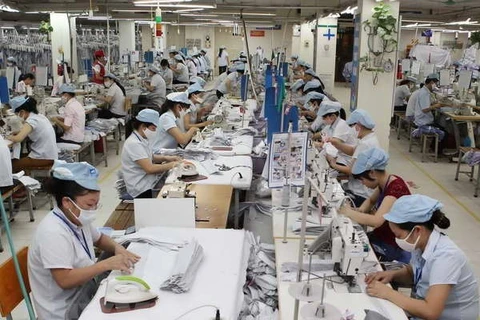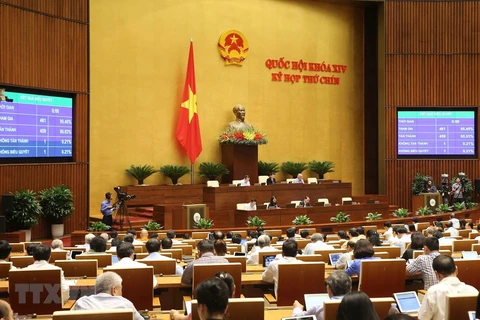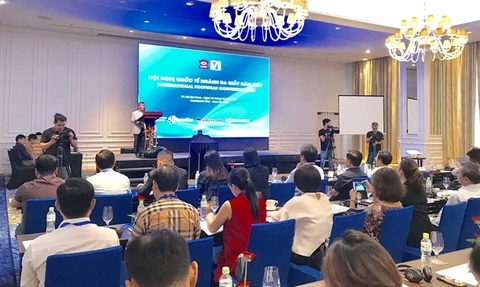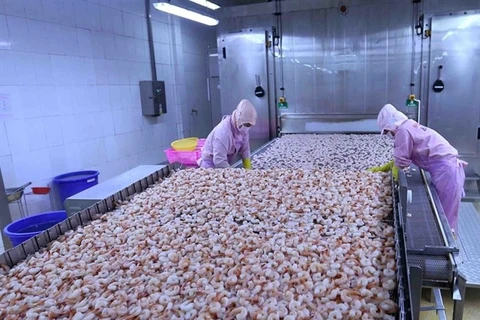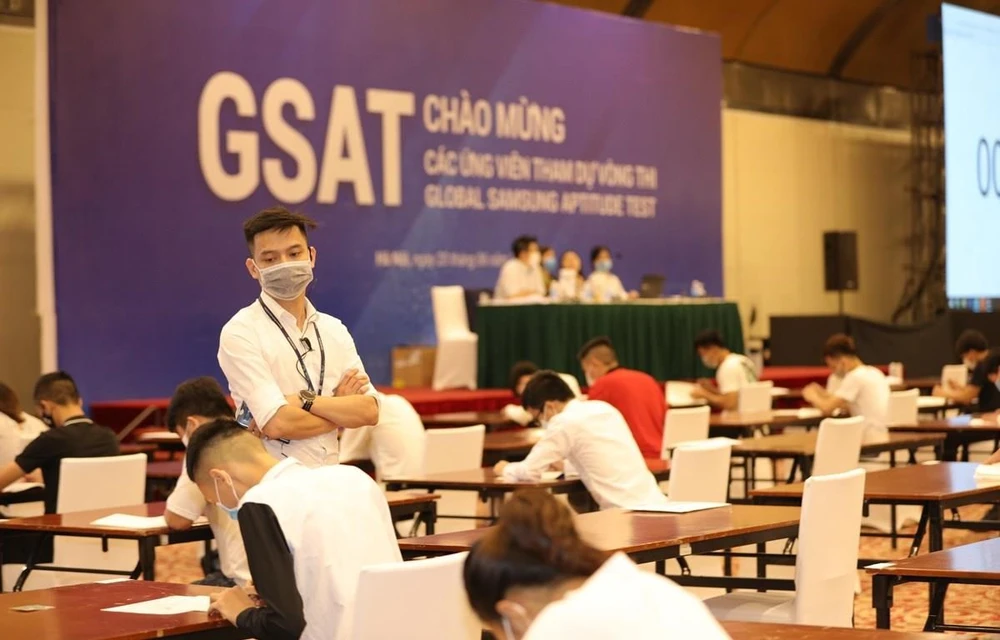
Hanoi (VNA) - After the European Union-Vietnam Free Trade Agreement (EVFTA) was adopted in the second quarter of this year, there was a wave of investment in key manufacturing industries in Vietnam and job opportunities for labourers.
The information was revealed by Navigos Search, an executive search firm of Navigos Group, a leading company in Vietnam’s recruitment industry, in its report on recruitment demands for medium and senior management personnel in Vietnam in the second quarter announced on July 29.
FDI firms draw Vietnamese workers
Under the EVFTA, the garment-textile and footwear industries, which are subject to many incentives, are expected to make Vietnam an ideal investment destination for businesses from Asia, Europe and America. The deal is also hoped to help the agriculture sector to grow vigorously.
In the second quarter, the demand for middle managerial positions in the garment industry increased slightly, mostly from foreign-invested factories such as those from the Republic of Korea and the US. In addition, factories that process low-cost, supermarket-segment clothing orders resumed their production by starting to receive orders again, especially outsourcing ones from the US’s leading retail firms.
A number of companies in the electronics industry had resumed their plans to move new factories from Asia to Vietnam, thus increasing the recruitment demand in this sector. Businesses have been making investment plans and carrying out new projects in the electronics and automobile sectors in industrial cities such as Ha Nam, Hai Phong, and Hai Duong.
The supporting industries are also expected to draw more foreign investment from European countries.
The adoption of the EVFTA has also helped enhance Vietnam’s position and attract great attention from investors from the US and Europe in the energy sector.
The recruitment demand in the energy sector surged in the second quarter, especially regarding wind and solar power. The demand is expected to see a strong increase in the third and fourth quarters, mainly in the central localities like Ninh Thuan.
 The signing ceremony of the EU-Vietnam Free Trade Agreement (EVFTA) and EU-Vietnam Investment Protection (EVIPA) (Photo: VNA)
The signing ceremony of the EU-Vietnam Free Trade Agreement (EVFTA) and EU-Vietnam Investment Protection (EVIPA) (Photo: VNA) Navigos Search forecast that the fluctuations in the movement of investment flow from Japan to Vietnam in the fourth quarter of this year would largely affect the recruitment demand of some businesses.
In the second half of the year, new investors will focus on Thang Long 3 industrial park in the northern province of Vinh Phuc and Dong Van 3 industrial park in the northern province of Ha Nam.
Foreign investment is expected to increase not only in the manufacturing sectors but also in education. The personnel recruitment market in the education sector has warmed up with the rising demand in new international and bilingual schools.
Not only attracting businesses to shift investment, but Vietnam is also now a preferred working destination for foreign experts. This is evident in the energy sector, which is luring both foreign experts and repatriated Vietnamese. Many foreign experts have proactively accessed personnel consultation services and sought employment opportunities in Vietnam. Senior Vietnamese experts and engineers who are working abroad also expressed their wish to come back to Vietnam for work despite lower incomes.
Recruitment postponement
Besides sectors that are showing signs of recovery, many industries are still struggling to maintain the personnel apparatus.
For the retail industry, many businesses were forced to restructure their organisational structure by reducing staff or adjusting salaries and benefits for middle managerial positions.
The banking sector has still been reviewing operational expenses, making the recruitment demands sluggish without signs of strong resumption, especially for senior employment segment.
According to Navigos Search, in the second quarter, newly-established Japanese firms in Vietnam are yet to come into operation due to the impact of COVID-19. Furthermore, many Japanese senior experts holding key positions in factories have been unable to come to Vietnam due to travel restrictions, which leads to the postponement of recruitment./.
